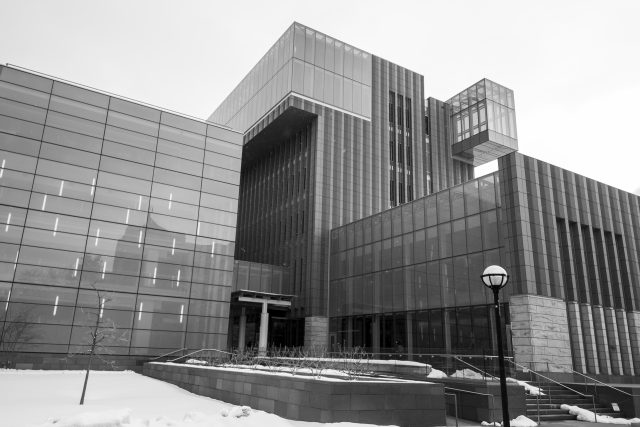[ad_1]
With September drawing to a close, club recruitment at the University of Michigan is in full swing. Students across campus are applying, interviewing and awaiting decisions for a limited number of openings in some of the University’s most exclusive organizations. It makes sense that these cycles are competitive, but the lack of transparency poses a problem. In many ways, the decision process feels like a black box.
Of course, the exclusivity of many of these clubs is unavoidable, as most of them simply don’t have the capacity to accept more people. Resource constraints and the difficulty of managing a large organization place a natural ceiling on the number of members a club can sustain. Along with this, the status that comes with exclusivity is what makes these organizations look so appealing on resumes. If a person can get into one of the most competitive clubs for their field, they’re theoretically a better candidate for a competitive firm or company. Organizations accept few people not only because of limited spots, but also because it preserves their high standing.
While competition is the natural and reasonable consequence of these factors, it presents a few problems. Club recruitment damages campus culture by pitting students against each other. The environment at the University emphasizes excellence, often at the expense of mental health, and this instance is no different. It instills an unproductive sense of hierarchy among students, as if some students were “worthy” of getting in, while others weren’t. That wouldn’t be a large issue if the applications were completely fair, but they often aren’t.
Not every person comes into college with the same academic background, which places some students at a disadvantage. Students who graduated from better-funded schools will likely have more experiences to showcase on their resumes compared to other students. In this way, the club application process relies on an unconscious bias: Students with more resources are at an advantage in the application cycle. While clubs aim to level the playing field with professional development events, leaders must recognize the unequal field that applicants stand on.
With these issues in front of mind, it is clear that the current club application process needs to change. These ultra-selective organizations should increase transparency with applicants to make the process less daunting.
For starters, clubs should be open about their acceptance rates. If they see a lower percentage of admission, students could then decide if applying is worthwhile or a waste of their time. Similarly, clubs clarifying their standards would allow students to make more informed decisions about where to focus their efforts. Applicants deserve to know if the rubric they are being graded on in order to be accepted.
Additionally, clubs should be willing to believe in the potential of different applicants. It isn’t detrimental to accept someone who didn’t have access to or take advantage of the “right” resources in high school to be competitive in their current club application process.
Finally, clubs should be honest when they send their rejections. It isn’t helpful for students to receive the same “I regret to inform you…” email over and over again. Instead, clubs should let students know a few reasons they didn’t get accepted. This can help students learn and improve for future club applications while also adding value to the application process. Students might not worry about wasting their time if rejections came with helpful feedback. If they know why they were denied admission, they can learn from their errors and find ways to improve their resumes.
Improving campus culture starts with providing greater equity and transparency in the club recruitment process. Unclear standards, acceptance rates and reasons for rejection need to be clarified. Students — particularly underclassmen — shouldn’t enter this application season with an impending fear of judgment or denial. If we want to create a flourishing, accepting academic and social environment, campus organizations need to lead with openness, not exclusivity.
This editorial represents the opinion of The Michigan Daily’s Editorial Board. If you are interested in submitting an Op-Ed or Letter to the Editor, please send your submission to tothedaily@michigandaily.com.
Related articles
[ad_2]
Source link











